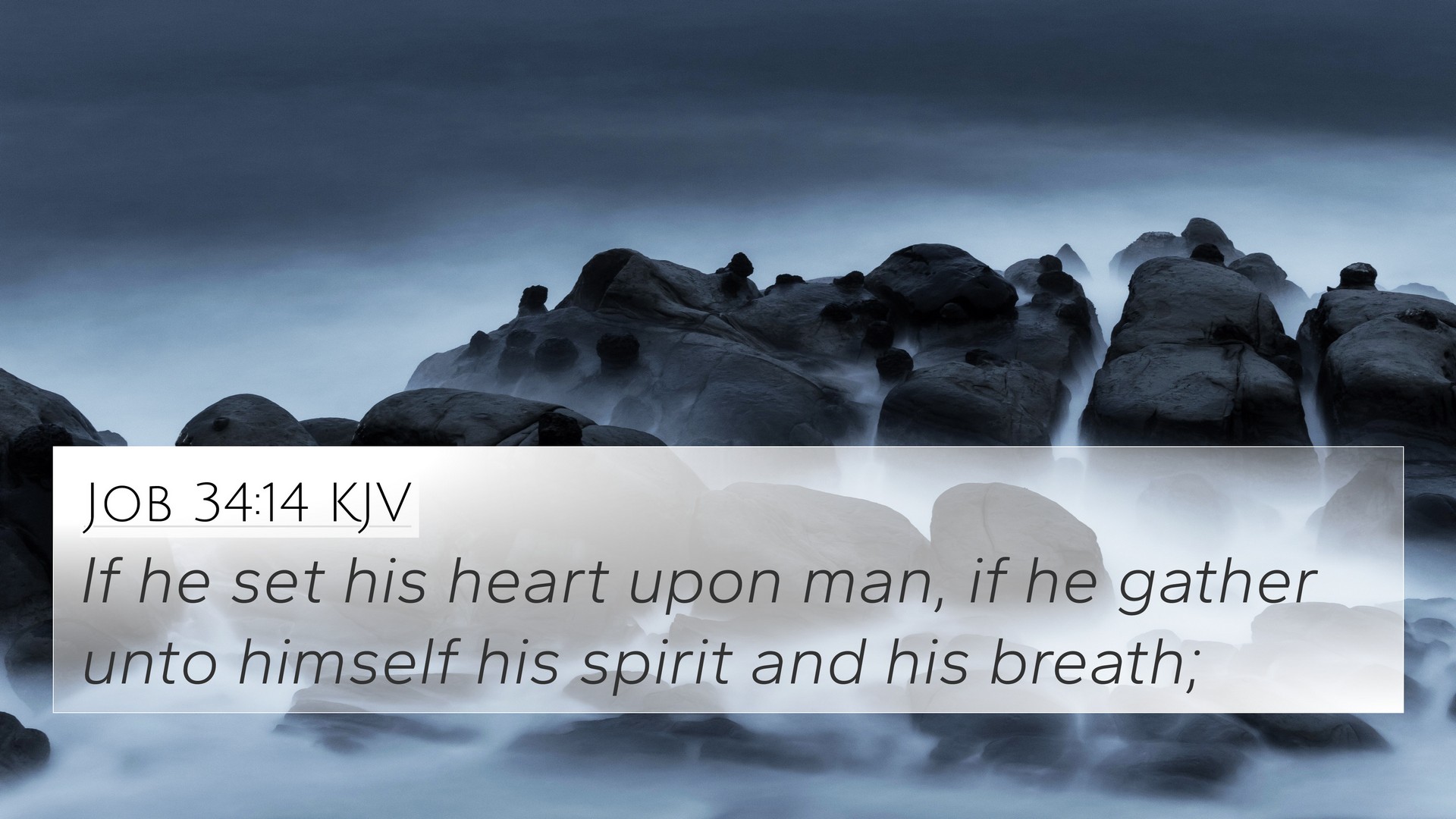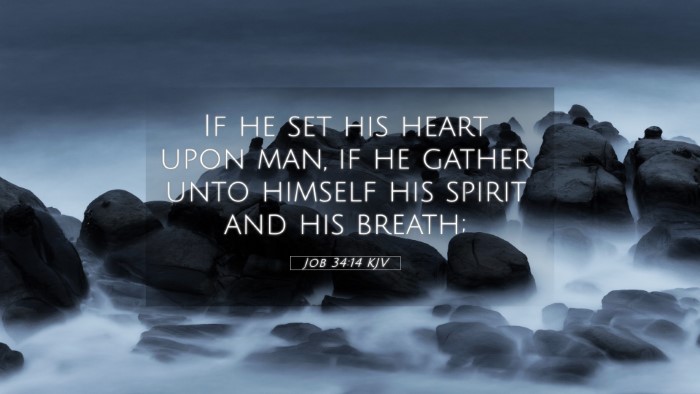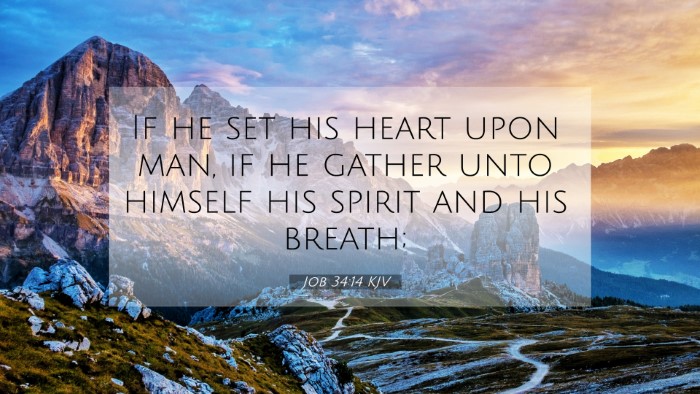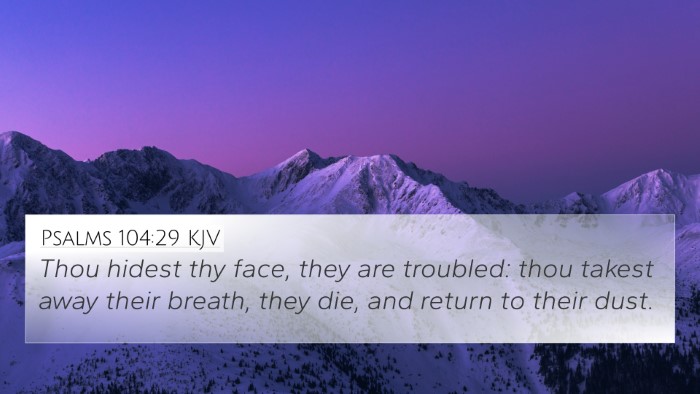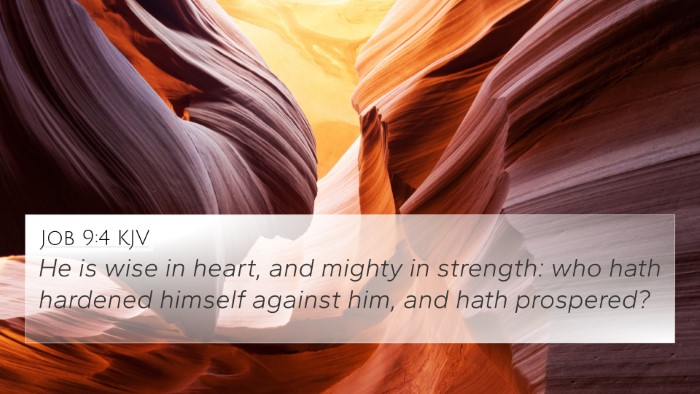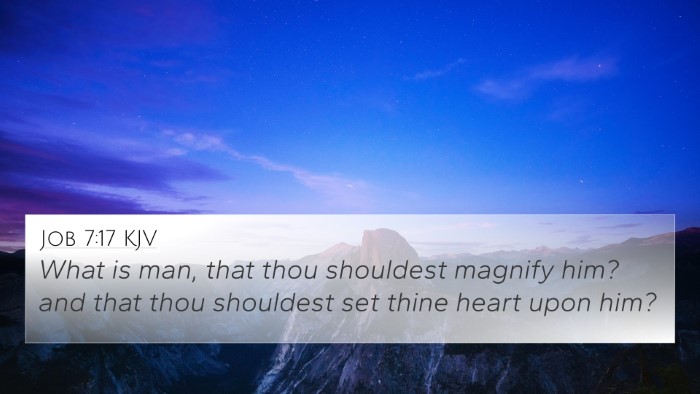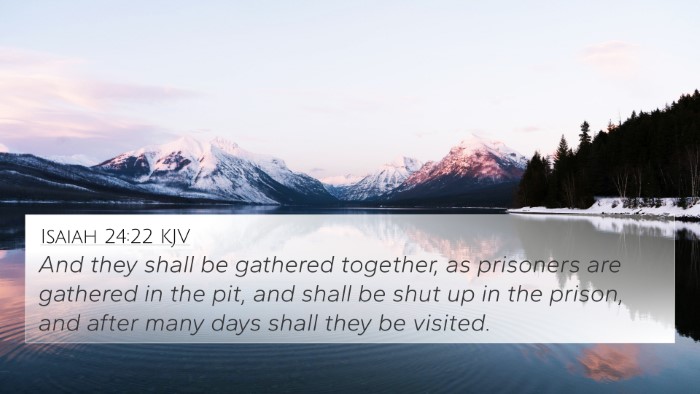Understanding Job 34:14
Job 34:14 states, "If He should set His heart on it, if He should gather to Himself His Spirit and His breath, all flesh would perish together, and man would return to dust." This verse speaks to the sovereignty of God and His ultimate control over creation. The insights from various public domain commentaries provide depth and clarity to this profound statement.
Key Insights from Commentaries
-
Matthew Henry:
Henry emphasizes God's continuous involvement in the life of His creation. He points out that God's spirit sustains all living beings, and if He were to withdraw it, all would perish. This illustrates the dependency of humanity on God's grace and presence.
-
Albert Barnes:
Barnes notes that this verse highlights the idea that life is contingent upon God’s will. Here, Job reminds us that it is God who gives and sustains life, and without His breath, life ceases. The phrase 'return to dust' signifies the mortality of man and the inevitable return to the earth without divine intervention.
-
Adam Clarke:
Clarke elaborates on the theological implications of God’s withdrawal of His spirit, explaining that all of creation is interconnected under God's governance. He stresses the brevity of human existence in comparison to the eternal nature of God, illustrating that life is temporary and contingent upon divine favor.
Theological Themes
This verse connects to several themes prevalent in Scripture:
- God’s Sovereignty
- The Nature of Life and Death
- The Relationship between Creator and Creation
- The Importance of Divine Sustenance
Bible Verse Cross-References
To further understand Job 34:14, consider the following Bible verses that relate to its themes:
- Genesis 2:7: "And the Lord God formed man of the dust of the ground, and breathed into his nostrils the breath of life; and man became a living soul." This highlights God's role in granting life.
- Psalm 104:29-30: "You hide Your face; they are troubled; You take away their breath, they die and return to their dust. You send forth Your Spirit, they are created; and You renew the face of the earth." This verse mirrors Job's sentiment about divine breath and life.
- Isaiah 42:5: "Thus says God the Lord, who created the heavens and stretched them out, who spread forth the earth and that which comes from it, who gives breath to the people on it, and spirit to those who walk on it." This affirms that breath and spirit are gifts from God.
- Acts 17:25: "Nor is He worshiped with men’s hands, as though He needed anything, since He gives to all life, breath, and all things." This emphasizes God’s provision for life.
- Job 10:12: "You have granted me life and favor, and Your care has preserved my spirit." This verse acknowledges God’s sustenance of life.
- Ecclesiastes 12:7: "Then the dust will return to the earth as it was, and the spirit will return to God who gave it." This reinforces the cycle of life and death discussed in Job 34:14.
- Hebrews 1:3: "who being the brightness of His glory and the express image of His person, and upholding all things by the word of His power." This underscores God’s continuous upholding of creation.
Connections Between Bible Verses
The connections between Bible verses can deepen our understanding. Job 34:14 serves as a source for cross-referencing throughout Scripture:
- The interplay between God’s sovereignty and human frailty is echoed in many biblical narratives.
- Insights from Job's expressions resonate with the teachings of the New Testament, revealing a consistent theological framework.
- By analyzing these connections, believers can appreciate the depth of God's relationship with humanity and His authority over life and death.
Conclusion
In summary, Job 34:14 offers profound insights into the nature of God's authority and the dependence of humanity on His will. By exploring this verse through various commentaries and cross-references, we gain a richer understanding of the biblical narrative regarding life and death. The interconnectedness of Scriptures reminds us of the vast themes present throughout the Bible.
